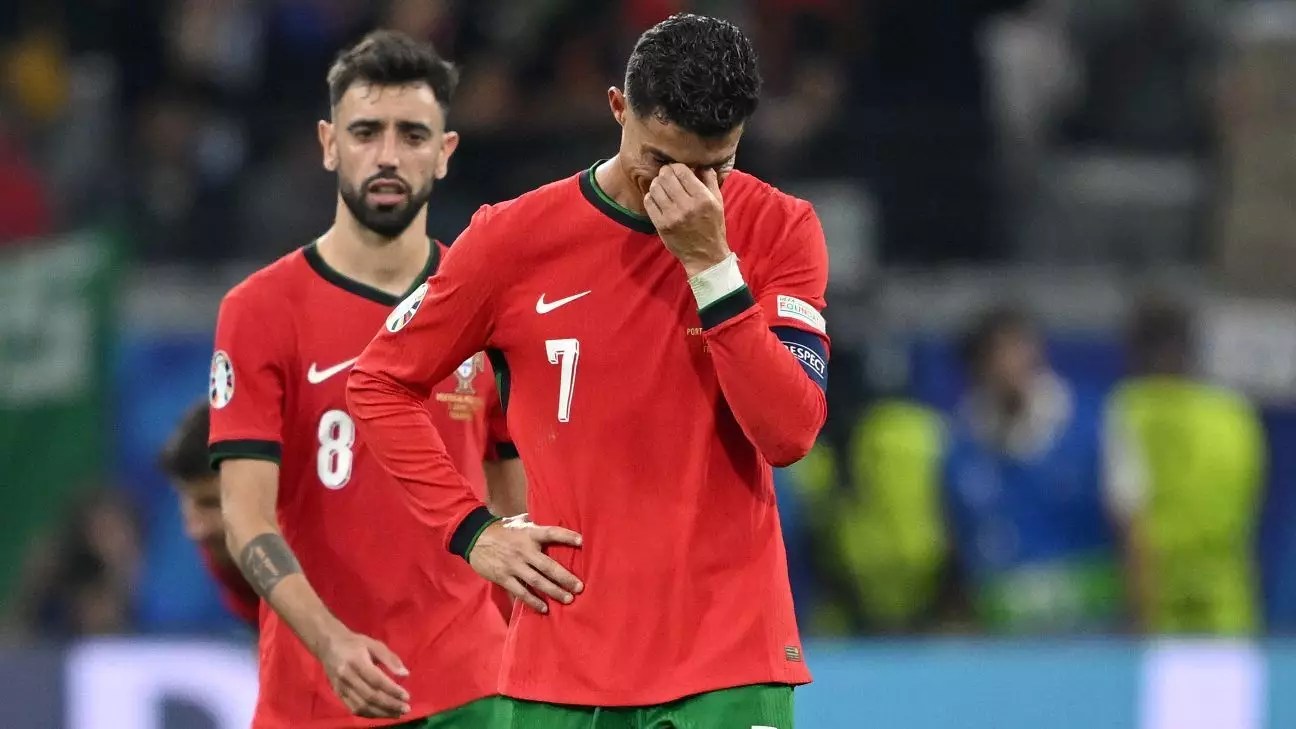Euro 2024 will be remembered for various reasons, including unexpected third-placed group-stage qualifiers, long-range goals, and star strikers who failed to deliver. The tournament saw top favorites for the Golden Boot award, such as Harry Kane, Kylian Mbappé, Álvaro Morata, Cristiano Ronaldo, Romelu Lukaku, and Antoine Griezmann, scoring a combined total of 12 goals. This paled in comparison to the 142 goals scored in Euro 2020. Six players ended up sharing the Golden Boot, with half of them not even being strikers, which begs the question: what led to this outcome?
The Role of Ronaldo
One of the significant factors in the lack of goals from star strikers was Cristiano Ronaldo’s underperformance for Portugal. Despite Portugal’s attacking tactics revolving around supplying him with chances, Ronaldo failed to find the back of the net throughout the tournament. With the team focusing all efforts on feeding Ronaldo the ball, talented midfielders like Bruno Fernandes and Bernardo Silva were seen crossing instead of shooting, which led to a lack of options in the attacking third. Ronaldo’s minimal defensive responsibilities allowed him to conserve energy for attacking, but his poor finishing let the team down.
Euro 2024 showcased the evolution of striker roles in modern football, where finishing is just one aspect of their responsibilities. Players like Havertz, Depay, and Mikautadze demonstrated that link play, movement off the ball, and creating space for teammates are equally important. Havertz’s strategic positioning and unselfish runs helped Bayern Munich in the tournament. Similarly, Depay’s involvement in all aspects of the game for the Netherlands highlighted his importance beyond scoring goals. Mikautadze’s unique role for Georgia, despite limited shots on goal, had a significant impact on the team’s attacking dynamics.
Kylian Mbappé’s role for France allowed him the freedom to drift on the pitch, influence the game, and focus solely on attacking without worrying about defensive duties. Other players like Marcus Thuram, Adrien Rabiot, and N’Golo Kanté covered for Mbappé defensively, leaving him to create chances and stretch the opponents. Despite his involvement in key attacking moments, Mbappé’s conversion rate was low, indicating missed opportunities throughout the tournament. His unique attacking freedom was mirrored by Turkey’s Güler, who thrived on twists, turns, and strikes on goal, with minimal defensive responsibilities.
Captains Harry Kane and Álvaro Morata exemplified the sacrifice strikers made in Euro 2024, prioritizing defensive work and team success over individual goals. Kane’s deep-lying position and defensive contributions for England, despite scoring three goals, showcased his commitment to team play. Morata’s selfless approach for Spain involved dropping deep to create space for teammates and work tirelessly for the team’s benefit. Their leadership and selfless play were instrumental in making their teams hard to beat, even at the expense of individual scoring opportunities.
Euro 2024 highlighted the evolving roles of strikers in modern football, where scoring goals is just one aspect of their contributions. The tournament showcased the importance of link play, movement off the ball, and defensive responsibilities for forwards in helping their teams succeed. The performances of star strikers like Ronaldo, Mbappé, Kane, and Morata underscored the significance of team play and sacrifice for greater team success in a highly competitive tournament setting.


Leave a Reply